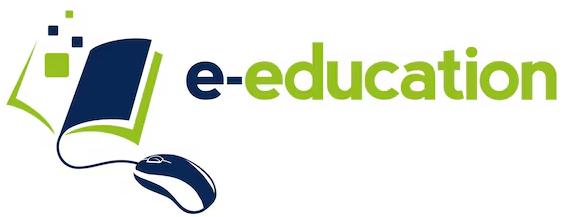At East Bridge University (EBU), education is more than a path to employment — it’s a catalyst for independence, creativity, and community transformation. Under SDG 1: No Poverty, EBU’s mission goes beyond classrooms and degrees. It’s about helping learners turn their knowledge into opportunities and their ideas into enterprises that strengthen local economies.
Through its Local Start-up Assistance Programs and community partnerships across Paris, the UK, India, Dubai, and Bangkok, EBU has become a launchpad for student-led entrepreneurship. The university’s model provides the tools, mentorship, and funding guidance that empower graduates to become not only job seekers but job creators — generating income, employment, and long-term economic growth.
Entrepreneurship as a Pathway Out of Poverty
Poverty is not just an absence of money; it’s the absence of opportunity. By integrating entrepreneurship into education, EBU bridges the gap between learning and earning. Students from low-income households often possess strong ideas and motivation but lack access to business training, mentorship, or resources. EBU’s entrepreneurship programs directly address this challenge.
Under the Financial Inclusion and Student Success Initiative, students from the bottom 20 per cent of household income groups receive comprehensive support that includes financial aid, academic coaching, and career guidance. The initiative’s impact is tangible: 467 students (30 per cent of enrollment) currently benefit from wrap-around support, achieving an exceptional 96 per cent retention rate and 93 per cent completion rate.
Through our flexible online degree programs, students gain access to specialised entrepreneurship training that equips them to build sustainable livelihoods and lift others along the way.
The Local Start-Up Assistance Program: Building Futures, One Business at a Time
EBU’s Local Start-up Assistance Program transforms theory into practice. Through a combination of mentorship, skill development, and community partnerships, students learn how to design business plans, pitch ideas, secure funding, and manage operations effectively.
The outcomes are inspiring. So far, EBU has supported 89 small-business launches, generating 267 direct jobs in underserved communities. Each enterprise — whether a social start-up in India, a digital service in Dubai, or an education centre in Bangkok — represents a story of resilience and creativity.
These ventures not only improve individual livelihoods but also contribute to local economic growth. By nurturing entrepreneurship among low-income learners, EBU ensures that education becomes a vehicle for community upliftment and self-reliance.
Empowering Global Learners, Strengthening Local Economies
The impact of EBU’s entrepreneurship initiatives extends far beyond campus walls. The university provides specialised support for 187 students from 40 low and lower-middle-income countries, offering flexible payment plans, technology grants, and business incubation support.
An annual $234,000 investment fuels this global inclusion effort. Even more encouraging, 71 per cent of graduates return to their home countries to apply their skills — launching start-ups, teaching others, and contributing to sustainable development within their communities.
In this way, EBU’s entrepreneurship support becomes a cycle of shared growth — empowering individuals who then empower others.
Collaboration, Innovation, and the Road Ahead
None of this happens in isolation. EBU collaborates with 58 partner organisations — including NGOs, government bodies, and international development agencies — to expand entrepreneurship education and economic inclusion.
Research at EBU focuses on technology-enabled solutions for poverty alleviation, such as digital financial tools, mobile learning for entrepreneurs, and AI-based career-matching systems. By combining innovation with inclusion, EBU ensures that its entrepreneurship programs remain relevant and scalable.
As the university looks to the future, it aims to further expand access to start-up grants, build regional incubator hubs, and foster more partnerships that help turn learners into leaders of change.
Bridging Education, Innovation, and Social Impact
EBU’s entrepreneurship ecosystem is anchored in measurable outcomes. Beyond the 89 enterprises and 267 jobs already created, its community-focused initiatives reach nearly 2,100 direct beneficiaries each year. Many of these start-ups address social priorities identified in EBU’s SDG 1 framework—digital inclusion, female employability, and skill access for displaced learners.
By investing an average of US $ 2,975 per learner through the Financial Inclusion & Student Success Fund, EBU ensures that innovation benefits those most excluded from opportunity. Each venture that emerges from this support becomes a bridge between education and social change—proof that innovation is most meaningful when it uplifts communities.
Data-Driven Development and Policy Influence
EBU’s annual investment of roughly US $ 234,000 in inclusion programs is tracked through rigorous monitoring frameworks tied to SDG 1 indicators. The university’s research centre analyses retention (96 %), completion (93 %), and post-graduation employment trends to shape policy recommendations for partner governments and NGOs.
Insights from this data have informed local development forums in Myanmar and Sri Lanka, where EBU provided evidence showing that graduates from low-income cohorts achieve a 71 % local reinvestment rate—meaning they return home to build enterprises and create employment. This evidence-to-policy approach reinforces EBU’s role as a credible voice in national poverty-alleviation dialogue.
Stories of Resilience and Real-World Change
EBU’s global inclusion model, now serving 187 students from 40 low- and lower-middle-income nations, produces stories that embody the human side of the SDGs. Graduates supported by the initiative—many of whom were first-generation learners—have launched social enterprises employing peers within their own regions.
Through these EBU’s strategic alliances, more than 2,100 individuals benefit annually, ranging from trainees in community workshops to families supported by graduate-run enterprises. Each partnership scales the impact of a single learner into sustainable community progress.
These successes demonstrate how financial support paired with mentorship multiplies impact far beyond the individual student.
Looking Forward – Building a Global Model for Inclusive Entrepreneurship
EBU plans to expand its low-income support cohort from the current 312 students to 500 by 2026, increasing both funding volume and geographical reach. Future incubator hubs in Bangkok, Nairobi, and St Lucia will provide blended mentorship—virtual and in-person—to encourage cross-regional innovation.
By aligning data transparency with global collaboration, EBU aims to replicate its proven model of high retention (96 %) and local reinvestment (71 %) across new territories, turning inclusive entrepreneurship into a scalable blueprint for poverty eradication.
Creating Opportunity, Not Dependency
Poverty can’t be solved by aid alone — it’s solved when people gain the power to create their own opportunities. At East Bridge University, that power comes from knowledge, confidence, and access to resources.
Through our online degree programs for professionals, EBU is rewriting the narrative of higher education: students are no longer simply preparing for jobs — they’re creating them.
Every business launched, every job created, and every life changed brings us one step closer to a world where education truly breaks the cycle of poverty and builds sustainable futures for all.



